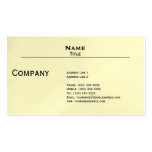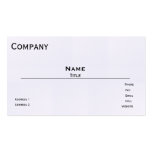Suggestions
- Make sure that your Series 7 license is current. Otherwise, you will not be able to open new accounts, place trades or sell financial service products to your clients. The Series 7 exam is administered by the Financial Industry Regulatory Authority and is a basic requirement to work in the brokerage industry. To take the Series 7 exam, you must be sponsored by a financial services company that is a member of FINRA or a self-regulatory organization.
- Take the Series 23 (General Securities Principal -- Sales Supervisor Module) and Series 27 (Financial and Operations Principal) exams, which are also administered by FINRA. According to FINRA, the Series 23 tests your knowledge of statutory rules and provisions for managing a general broker/dealer company, and the Series 27 exam tests your knowledge of financial responsibility rules and record-keeping requirements.
- Develop your business plan. It should address such matters as how you plan on funding the brokerage firm, your growth strategy and your target market. If you are seeking start-up capital, be prepared to discuss your business plan to potential investors and bankers. This is where your experience as a broker comes in. Rather than selling securities, you are selling yourself.
- Find office space. This will require an extensive search. The size of your office will depend on how many brokers you want to manage. It is best to have a small office initially. You can always expand your office or move to a bigger location as your brokerage firm grows.
- Seek legal counsel, preferably with an attorney who specializes in securities law. This will ensure the legality of your brokerage firm. Your lawyer should be able to tell you if any additional licenses or requirements apply to your brokerage company.
- Select a brokerage clearinghouse that supports independent brokerage firms. These clearinghouses offer software platforms geared toward independent wealth advisers and back-office support, such as clearing trades and providing customer confirmations and compliance support. This is particularly important, as it frees you from having to have a back office that requires additional staff and start-up capital. For example, FINRA requires that you have $250,000 in net capital to clear and hold customer money, as opposed to $5,000 for brokers who do not hold customer money.
- Contact existing clients to sign them up with your brokerage firm once your company is properly set up and has its required licenses. This is a good time to start the hiring process for registered brokers with proven track records and a client base. Having qualified brokers is crucial to the success of your firm.
Tip
- Starting your brokerage firm with an existing client base makes things easier. Make sure you have clients who are willing to transfer or open up their accounts with your brokerage firm. Start-up capital will mostly come from your savings and other sources, such as personal credit cards. Using your own capital enhances your credibility and demonstrates your commitment to potential investors, employees and bankers.
______________________




 Eggshell (Textured) Business Card
Eggshell (Textured) Business Card



Running your own brokerage company has its rewards but is full of challenges. Taking on the increased responsibility of owning your own brokerage firm requires additional licenses and start-up capital. So before starting, planning is very essential.
ReplyDeleteTips to Start Financial Brokerage Company